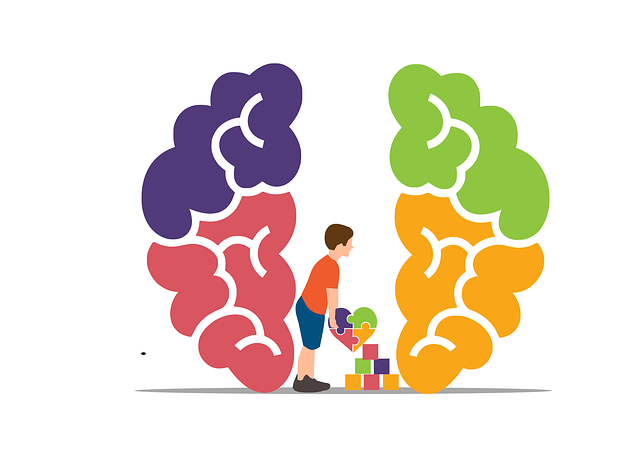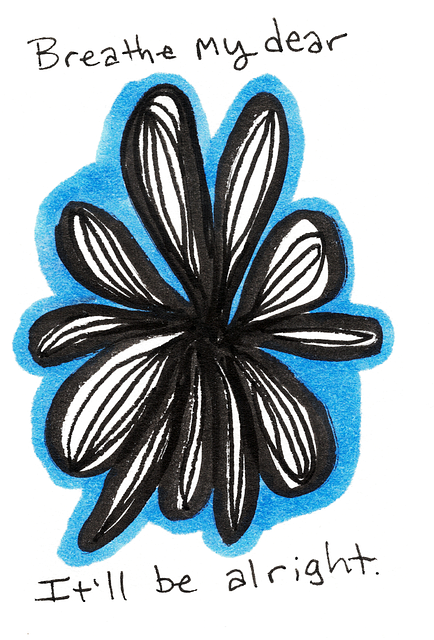Stress management workshops, focusing on evidence-based cognitive-behavioral therapy (CBT) techniques, offer a path to improved mental wellness, particularly for those dealing with panic disorder and anxiety attacks. These workshops create safe, inclusive spaces that empower participants with tools like mindfulness meditation, relaxation techniques, and stress assessment tools. Through open discussions, interactive elements, and real-life case studies, facilitators guide attendees towards better managing stress, building resilience, and enhancing their quality of life, specifically targeting therapy for panic disorder and anxiety attacks.
Stress management workshops play a vital role in enhancing mental well-being. This article guides you through essential aspects of organizing such sessions, focusing on understanding stress and its impact on mental health. We delve into designing engaging workshop content tailored to address panic disorder and anxiety attacks, while also offering facilitation tips to create a supportive environment. By the end, you’ll be equipped to lead effective therapy-focused workshops.
- Understanding Stress and Its Impact on Mental Health
- Designing Effective Workshop Content for Stress Management
- Creating a Supportive Environment: Facilitation Tips for Workshop Success
Understanding Stress and Its Impact on Mental Health

Stress is a complex response that stems from various life situations and triggers a cascade of physical and mental reactions. It can be acute or chronic, and while short-term stress may enhance performance, prolonged exposure can lead to detrimental effects on mental health. When stress becomes unmanageable, it can manifest as anxiety, panic attacks, and even panic disorder. These conditions significantly impact an individual’s daily functioning and overall quality of life.
Addressing stress effectively involves recognizing its subtle signs and developing coping mechanisms. Workshops focused on mental wellness often incorporate techniques like mindfulness meditation and crisis intervention guidance to empower individuals with the tools to navigate stressful situations. By understanding the intricate relationship between stress and mental health, participants can begin their journey towards improved resilience and overall well-being.
Designing Effective Workshop Content for Stress Management

Effective workshop content for stress management should be tailored to address a wide range of stressors and their impact on mental health. Incorporating interactive activities and engaging discussions can help participants gain practical tools for managing anxiety, panic disorder, and other common stress-related issues. Presenting evidence-based techniques from fields like cognitive-behavioral therapy (CBT) ensures the information is both reliable and effective in reducing symptoms of anxiety.
In designing these workshops, it’s crucial to foster a safe and supportive environment where individuals feel comfortable sharing their experiences. Including segments on mindfulness practices, relaxation techniques, and stress assessment tools equips attendees with valuable skills for navigating daily challenges. By weaving in real-life case studies and success stories related to therapy for panic disorder and anxiety attacks, the workshops can offer tangible hope and inspiration for participants striving to enhance their mental wellness.
Creating a Supportive Environment: Facilitation Tips for Workshop Success

Creating a supportive environment is pivotal for the success of any stress management workshop. The atmosphere should encourage participants to open up and share their experiences, fostering a sense of safety and belonging. Facilitators can achieve this by ensuring active listening, creating ground rules that emphasize respect and confidentiality, and using inclusive language. Additionally, utilizing calming decor, soft lighting, and comfortable seating arrangements can help reduce stress levels from the get-go.
Effective facilitation involves guiding participants through activities that promote self-reflection and inner strength development. This could include mindfulness exercises, breathing techniques for panic disorder and anxiety attacks, and engaging discussions on healthy coping mechanisms. By integrating these practices into the workshop structure, facilitators enable attendees to develop practical tools for managing stress and cultivating resilience.
Stress management workshops play a pivotal role in empowering individuals to combat mental health challenges, particularly panic disorder and anxiety attacks. By combining education on stress understanding with practical tools and techniques, these sessions create a supportive environment conducive to personal growth and well-being. Through effective content design and facilitative strategies, participants gain skills to navigate life’s stresses, fostering resilience and enhancing overall mental fortitude. This holistic approach not only offers immediate relief but also serves as a lasting foundation for long-term mental health management.












